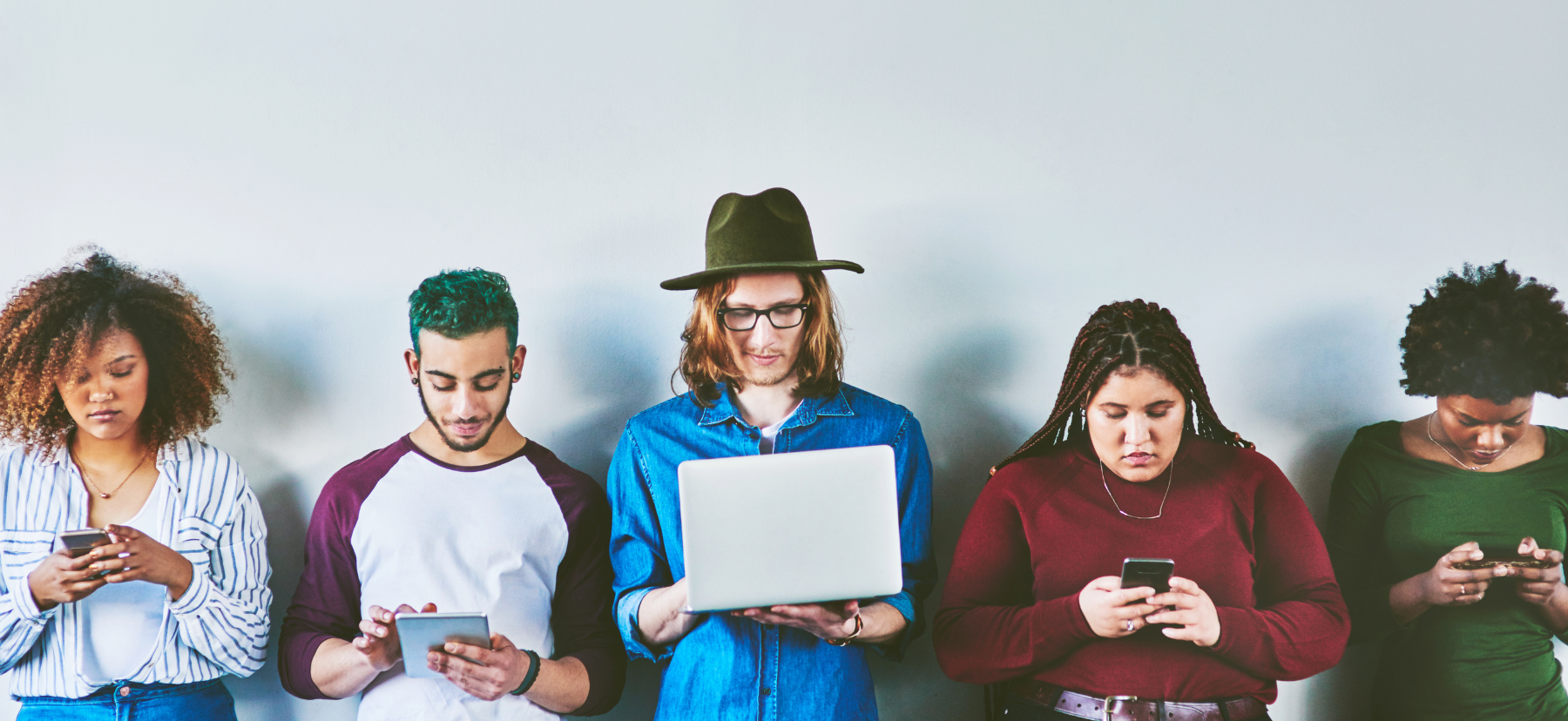Consumer trends driving retail in 2023
Detecting the signs of societal change and understanding how they point to the future is crucial in identifying the emerging needs of consumers. By doing so, not only can retail better equip themselves to be able to not only reap the rewards of 'getting it right' but moreover build brand loyalty and expand their communities.
Read the below Snapshot blog post for further information on consumer trends driving retail in 2023
Can consumer trends help?
When diving into trends for the upcoming year, it's always good to understand their importance and how they benefit business decisions and development. One of the main factors is that identifying trends can significantly help enlighten your organisation's creative thinking.
Having the proper knowledge at the forefront of minds allows employees to 'future-proof' your business by positioning your company correctly in the ever-changing consumer landscape. It also promotes an understanding of the worldwide shifts in society and their implications.
Taking a deeper look into customer behaviour psychology, according to research done by Mintel, there are seven core drivers of consumer behaviour.
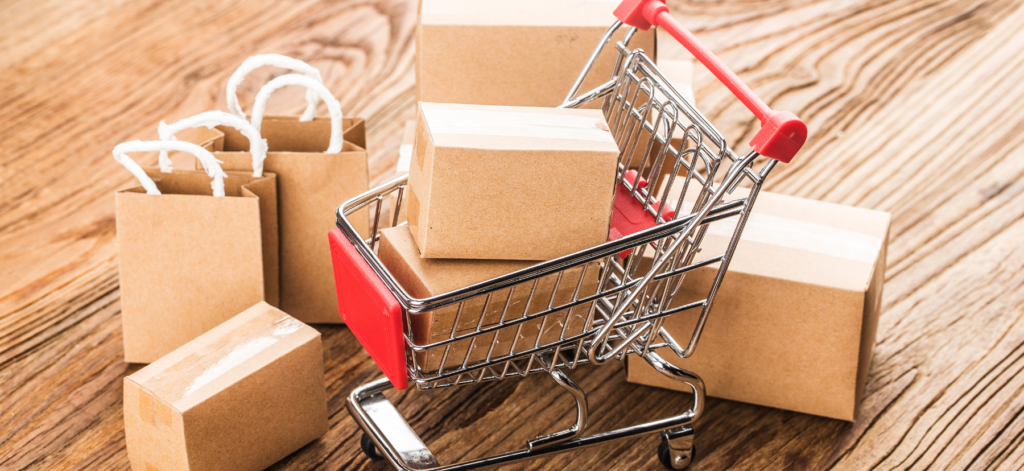
Seven core drivers of consumer behaviour
1: Wellbeing
Seeking physical and mental wellness.
2: Rights
Feeling respected, protected, and supported.
3: Value
Finding tangible and measurable benefits from investments.
4: Identity
Understanding and expressing oneself and one’s place in society.
5: Experiences
Seeking and discovering stimulation.
6: Surroundings
Feeling connected to the external environment.
7: Technology
Finding solutions through technology in the physical and digital worlds.

Key trends to look out for in 2023
1:Focusing on self
According to research done by Mintel, consumers will be eager to refocus on themselves this year. As a result, they will be looking for brands to assist them in making their needs and wants a priority.
Since the devastation of the pandemic, society's focus has been on the community. People have been used to putting their needs aside for that of humanity. As a result, there will be a re-emergence of the sense of self and an eagerness to put the focus back on themselves this year.
Consumers will be looking for brands that help them to harness their uniqueness and who put them first.
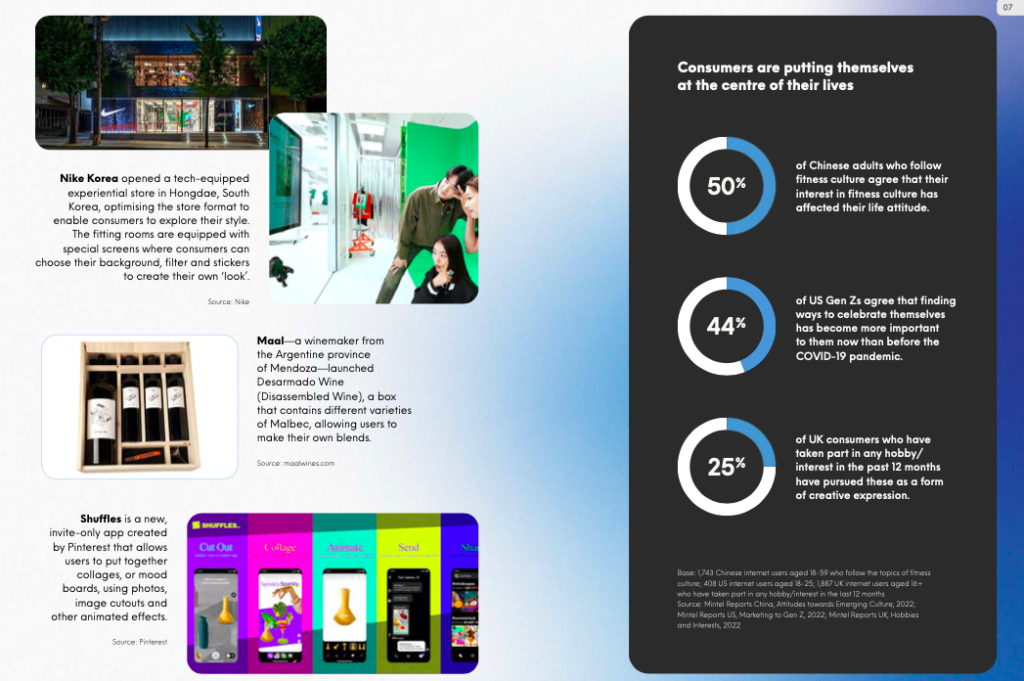
What does this mean for retail?
With customers looking to improve and build on their identity, brands can assist them by giving them the tools to do so. In addition, there is a new awareness of 'making up for lost time', which means they will be looking for more personalized products that cater to their skill level.
A newfound viewpoint of resilience will also be a priority for customers. Whereby they will want to adapt as they prepare for future uncertainties. Demand for mental health and wellness-focused products will grow as consumers look to understand their weaknesses and actively work to overcome them.
Brands can address this desire for clarity about the future by tapping into the spiritual practices or moral beliefs that consumers follow and engage in.
2: Power to the people
With the established freedom post-pandemic, consumers are making their voices heard and want to be able to make an impact. In addition, with the rise of social channels like TikTok that promote self-expression, brands are letting go of the reigns and allowing outside creatives to give a fresh perspective on their products.
A way that brands can harness this new angle to marketing is by encouraging consumers to be the creative centre of product innovation. The information gained from influencer marketing can lead to new products and services resulting from direct consumer feedback. In addition, companies can utilize social platforms to interact with brand ambassadors and customers to gather information on how their products are used and perceived.
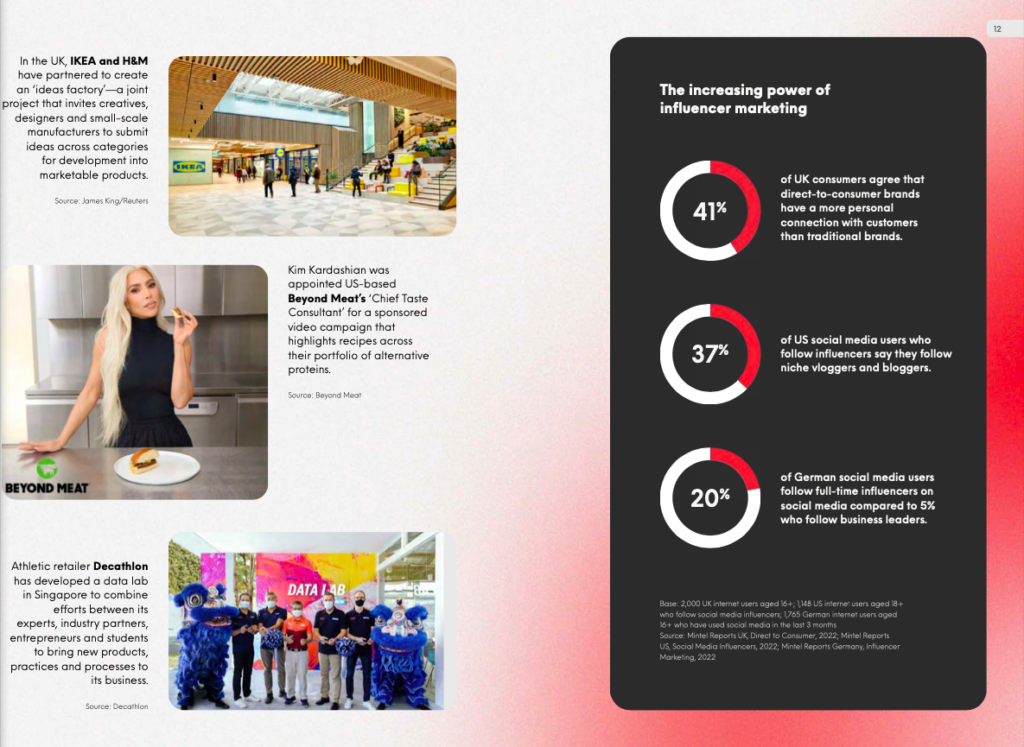
What does this mean for retail?
Over the next five years, brands will increasingly cater to the unique identities of their loyal consumer investors, fragmenting large, legacy brands into smaller, more targeted business units.
For consumers, a new era of 'social signalling' will start to appear as they feel more connected with the values of the brands they invest in.
What people wear, eat and drive won't just signal status but will be a detailed account of their attitudes and beliefs. Advances in technology that allow for extreme personalisation across categories will leave less room for mass-market products to drive collective appeal.
3: Hyper Fatigue
The era of hyperstimulation is leading to equal hyper fatigue. With the constant noise from all the continuous stimuli that come with 21st-century living, consumers will connect to what matters to them. In addition, stress, financial strain and uncertainty have led to a reassessment of self, and what matters.
No two customers are alike, but with technology starting to play such a pivotal role in our lives, it has been noticed that consumers are reevaluating how the increased usage is impacting their lives. For example, it has been documented that the constant use of social media negatively affects mental well-being, and consumers wish to reduce screen time.
With continuous technological developments, people remain apprehensive about the actual benefits. These advancements can lead to people feeling disengaged.
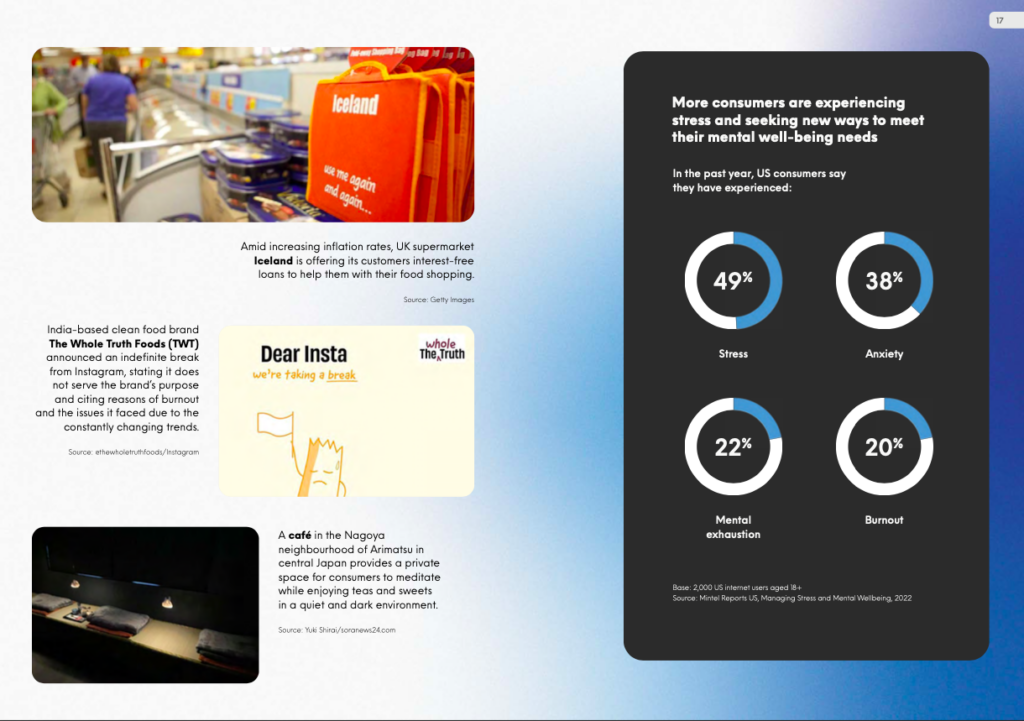
What does this mean for retail?
Individuals will start looking for meaning, comfort and a new sense of purpose this year. This is done by reconnecting with their environment, local communities, and, most of all, themselves. As a result, you can expect a completely different take on relaxation and unwinding in wellness spaces. Consumers will look for retreats that offer an additional 'digital detox'.
Some consumers want to retreat into nature and fully immerse themselves. In contrast, others might connect through community-based projects or charities—these attempts to counteract the daily doom and gloom in news channels.
Brands can assist their customers by continuing to look for options to manage and reduce product costs and by looking to channel customers' needs for solace.
To conclude
The continued uncertainty prevalent in today's society creates various effects on consumer behaviour. From escapism to activism, every individual will have a unique expression of circumstance. As a brand, knowing the impact of the global Zeitgeist will allow you to adapt your business model to allow for progression.
For more retail-related blog posts subscribe to our mailing list

